BMW Group is starting production of fuel cell systems for its new series of hydrogen cars, which will be in service by the end of this year.
The small series of BMW iX5 Hydrogen cars will be rolled out globally for testing and demonstration.
Oliver Zipse, chairman of the Board of Management of BMW AG and Frank Weber, member of the Board of Management of BMW AG responsible for Development, came together on 31st August to inaugurate the production at the company’s competence centre for hydrogen in Munich.
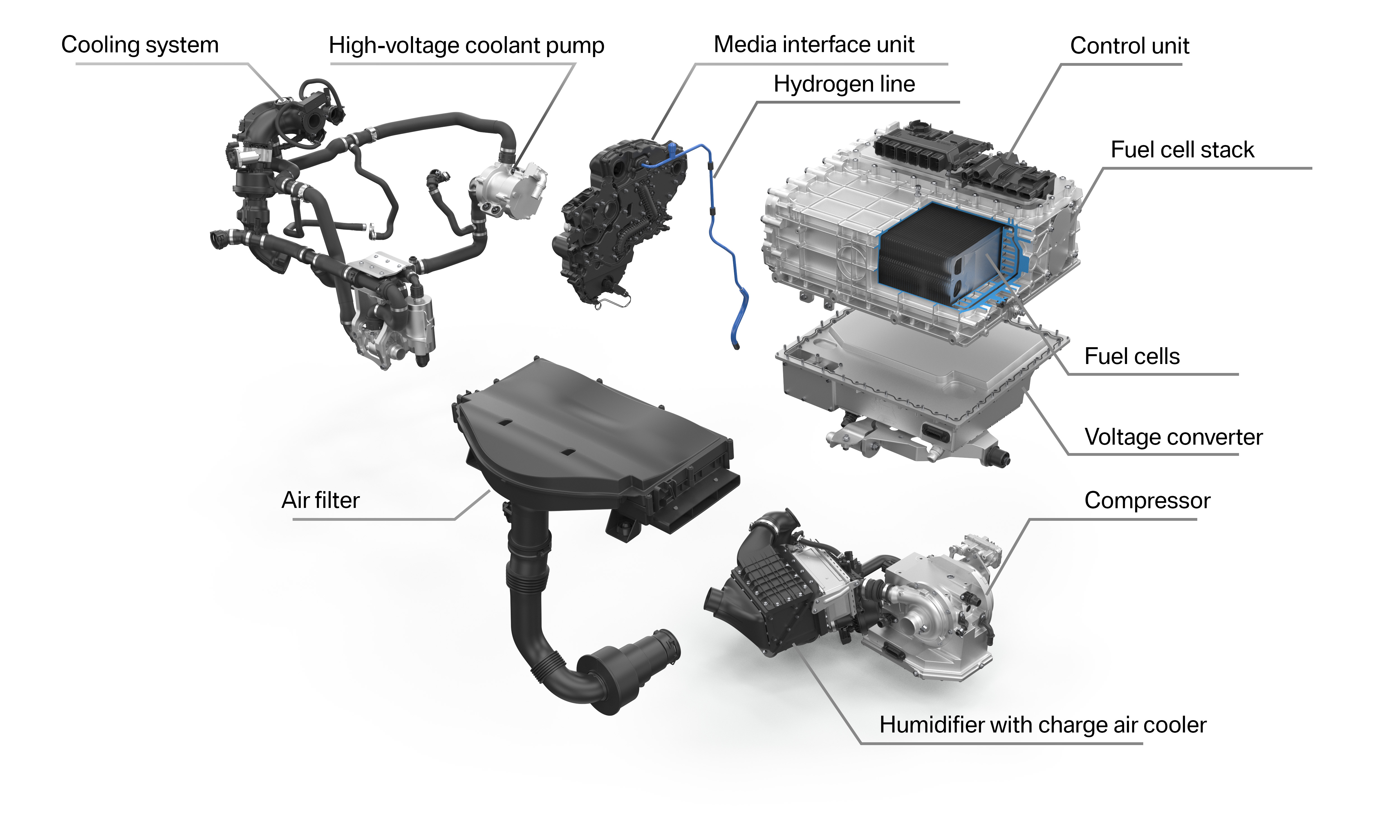
Mr Zipse said at the event: “As a versatile energy source, hydrogen has a key role to play on the road to climate neutrality. And it will also gain substantially in importance as far as personal mobility is concerned. We think hydrogen-powered vehicles are ideally placed technologically to fit alongside battery-electric vehicles and complete the electric mobility picture. By commencing small-scale production of fuel cells today, we are demonstrating the technical maturity of this type of drive system and underscoring its potential for the future.”
“Our many years of research and development work have enabled us to get the very most out of hydrogen technology,” Frank Weber added. “We have managed to more than double the fuel cell’s continuous output in the second-generation fuel cell in the BMW iX5 Hydrogen, while weight and size have both decreased drastically.”
The combination of fuel cell and high-performance battery is set to enrich the company’s portfolio with its more diversified transition to zero-emission mobility.
The new technology, which will be manufactured at BMW’s in-house competence centre for hydrogen, is one of the core elements in the BMW iX5 Hydrogen and generates a high continuous output of 125 kW/170 hp.
It teams up with an electric motor featuring fifth-generation BMW eDrive technology and a high-performance battery purpose developed for this vehicle to enable its powertrain to deliver 275 kW/374 hp.
The development team incorporated the powerful drive system, which comprises of two hydrogen tanks, the fuel cell and the electric motor, into the existing BMW X5 platform for the small production run.
The BMW iX5 Hydrogen has demonstrated its usability, even at very low temperatures, during the final round of winter testing in Sweden at the start of 2022.
The BMW Group has extensive experience with the use of hydrogen as a drive technology. Hydrogen-powered combustion engines had already been in use prior to the arrival of the fuel cell system. Efficiency considerations prompted the BMW Group to continue development work in this area from 2015 with the BMW 5 Series GT Hydrogen Cell based on fuel cell technology. Fuel cell technology has since been steadily refined by harnessing the company’s vast know-how in the field of conventional drive technologies and applying the extracting standards of all-round efficiency it expects of all its vehicles.
A chemical reaction takes place in the fuel cell between hydrogen from the tanks and oxygen in the air. Maintaining a steady supply of both elements to the fuel cell’s membranes is crucial for the drive system’s efficiency.
Adding to the technological equivalents of features found on combustion engines, such as charge air coolers, air filters, control units and sensors, the BMW Group also developed special hydrogen components for its new fuel cell system. These include the high-speed compressor with turbine and high-voltage coolant pump.
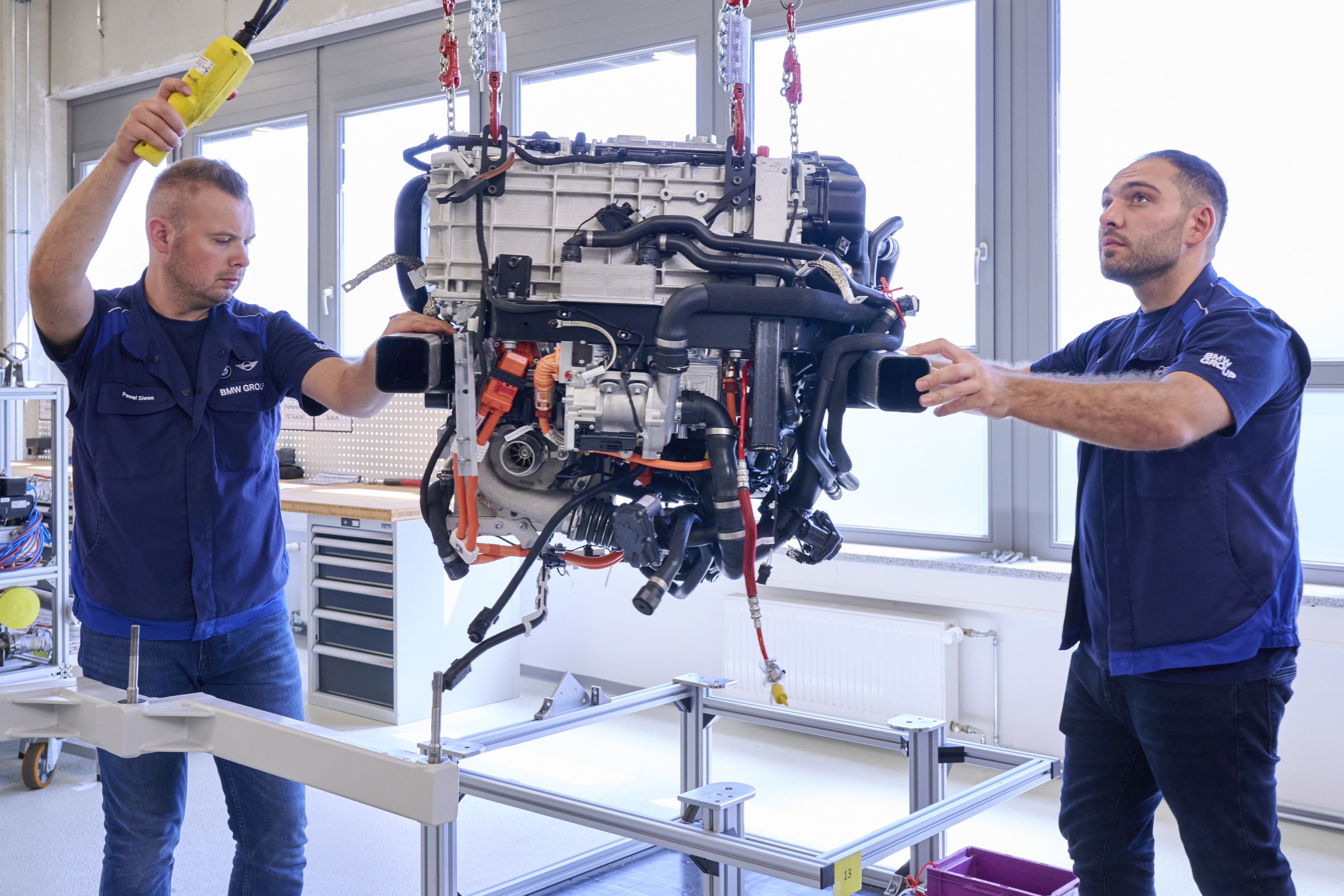
Fuel cell systems are manufactured in two main steps. The individual cells are first assembled into a fuel cell stack, before fitting all the other components to produce a complete fuel cell system in a fully automated process. Following damage inspection, the stack is compressed by machine with a force of five tonnes and placed in a housing. The stack housing is manufactured in the light metal foundry at BMW Group Plant Landshut using a sand-casting technique. For this, molten aluminium is poured into a mould made from compacted sand mixed with resin in a process specially designed for this small-series vehicle. The pressure plate, which delivers hydrogen and oxygen to the fuel cell stack, is made from cast plastic parts and light-alloy castings, also from the Landshut plant. The pressure plate forms a gas-tight and water-tight seal around the stack housing.
Final assembly of the fuel cell stacks includes a voltage test along with extensive testing of the chemical reaction within the cells. All the different components are then fitted together in the assembly area to produce the complete system. During this system assembly stage, further components are fitted, such as the compressor, the anode and cathode, the high-voltage coolant pump and the wiring harness.
The BMW Group and Toyota Motor Corporation, from which the car brand sources the individual fuel cells, have been in partnership for many years and have collaborated on fuel cell drive systems since 2013.

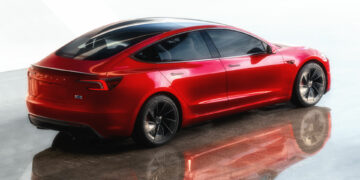
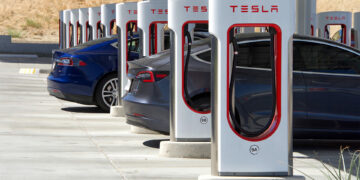


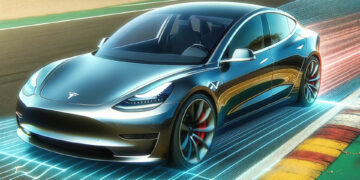
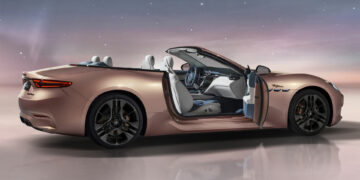

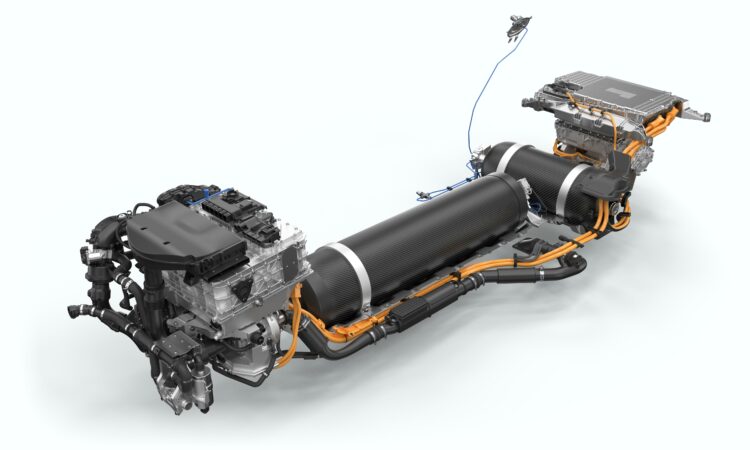
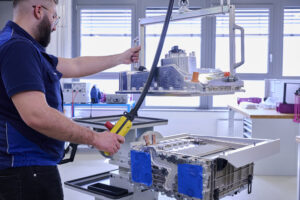
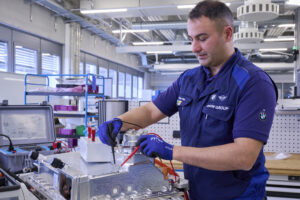
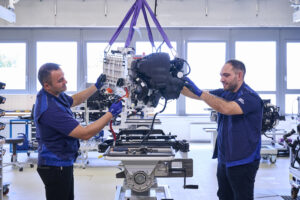









Discussion about this post